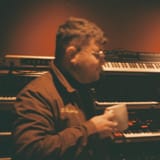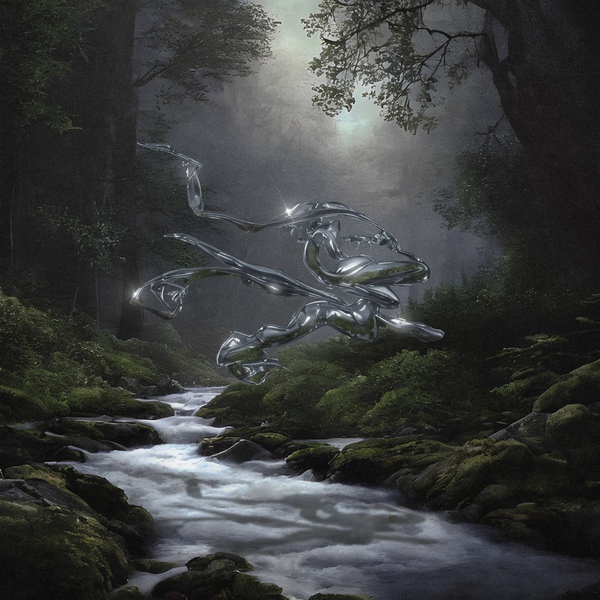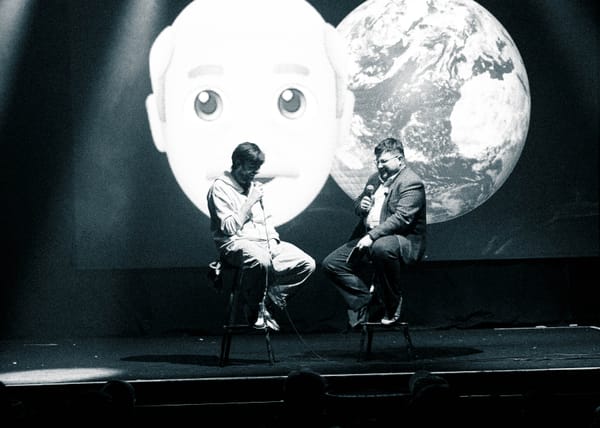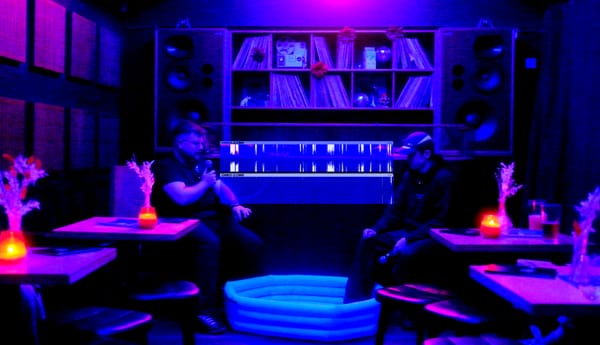i still see their marks that they left in the stone
the future of our past, fourth best's original sin, a manifesto in reverse, and one of 2025's best albums: Carving The Stone by For Those I Love

“Over the past couple of years whenever anybody would ask me how I’m doing I found myself repating “y’know y’know I’m just carving the stone”. You know, like I’m working away at myself. I’m chiselling away until I get to the thing that I know is in there. Leaving all that rubble and pain behind. Later when I was writing the album my mates were asking me “here how’s the music going?” and I’d say “Yeah I’m just carving the stone” - I’m working away at the songs. I have the idea and I’m just chipping away at the surface and at the bones — trying to reveal the art at the core.”
- David Balfe / For Those I Love
Last one was a little too normal. Let's step back. I’ve began to joke that you can’t write a Fourth Best piece without it accidentally becoming a manifesto. A review of a fun weekend becomes an argument to do this all the time, a look at a good album morphs into a screed against the system that failed its creator, a few nights out turns into a dense map of collaborators and scenes.
I presented a workshop at River Runs Round called Last Known Image of a Song - written in large part alongside this article - in which I invited the public to come by with some digital material - setlists, gig footage, local scene ephemera, rare MP3s - with the idea that they should be given over to some archive or other; MusicBrainz, Archive.org, Discogs, Setlist.fm, Wikimedia Commons, etc. It sounds very much in place with the world of the website - another obvious tangent that describes the shape of the Fourth Best Agenda, but I can tell you exactly what inspired me to run it.
In November 2023, the full contents of the archive of the hip-hop mixtape sharing website DatPiff were donated to Archive.org. Over 300,000 mixtapes. Not only would the archive prove to be the best place to find legendary mixtapes by some of the biggest rappers on earth, it would span every conceivable local hip-hop scene in the world; every microgenre, every imaginable tier of work. One friend of mine was simply delighted he could pull up some of the lost Craic Boi Mental aliases. Months later, the DatPiff archive would fully disappear from the public eye. My friend who was waiting for it to come back never backed up the work. Short of an intervention from the man himself, anyone who wants to tell his story will be doing so with many pages missing. This article has been so long in development that it turned surreal - only a few weeks after that talk, we saw Craic Boi return to the mic with the Dudewithswag archives in hand.
Of course, archival is not a new element to the Fourth Best Agenda - it’s one of the first things I wrote about when I started the site. When I put the posters up around town to promote the site, I found my favourite way of describing the site was “new Irish music coverage for a post-streaming age”. So much of the music I care about is simply on the brink of not surviving. If Bandcamp dies because its parent company can’t figure out what to do about it, or if the music never makes it to Bandcamp and one day a DistroKid bill goes unpaid, do you know people who’ve bothered to download it? The long-term future of some Irish albums I care about work might depend on piracy. Artists removing their music from Spotify in large volumes is the point at which I’m comfortable saying we’ve fully entered the post-streaming age - listening now requires more than your ears. It requires your hard drive. Time to get on Soulseek, pal.
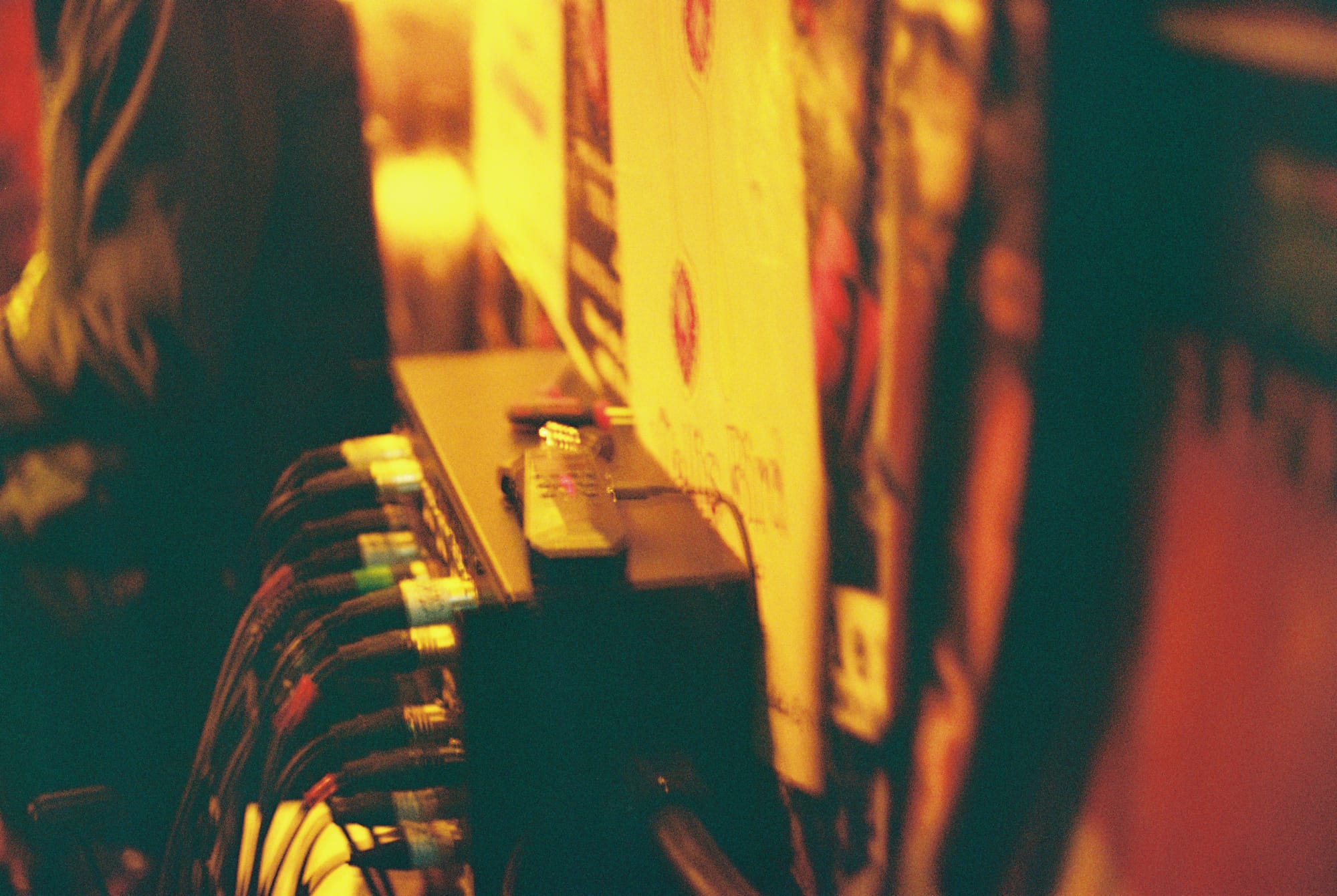
The adage that “software is eating the world” isn’t from some techno-skeptic philosopher - it’s from a Silicon Valley venture capitalist who very much wanted it that way. Everything horrible about our software-mediated lives is a deliberate opportunity for further profit; a tool for technological revolution weilded by rent-seekers. Cory Doctorow coined the term “enshittification” to describe the way that useful technologies decay in the endless search for growth and share value over the quality of a product, but I think it’s deeper than decay. The longer technology runs rampant, the more its economics begin to resemble that of addiction - “limbic capitalism” - engineering products that take up ever more space in our lives and then ramping up the prices.
You hear these narratives all the time around social media or online gambling, even vapes or whatever but it’s also there in the working world. Ask a digital artist who they hate more: Adobe or their landlord. I think they might hesitate. Now consider the myriad other ways in which technology controls work; from the Deliveroo driver to the destroyed journalistic outlets struggling to make ad revenue. The term I keep hearing is technofeudalism - a new economy of dependence. I’ve been obsessed with the journalistic output of Ed Zitron for Where’s Your Ed At lately in part because he has the correct amount of rage for the subject but also because he’s managed to come up with a banger of a campaign slogan: “I will never forgive these people for what they did to the computer.” Most people, he reasons, loved technology until the rot set in. The internet getting eternally smaller, stranger, both more restrictive for anyone who wants to use it in the name of art and less restrictive for fascists, liars, scammers, grifters, and talentless hacks.
Let’s pick up a loose thread from bás in Éirinn. My day job is in the tech industry - at some point I actually cared about trying to make software, went out and got a CS degree and have been working there since. I mean, I work for a company that’s mostly known for point-of-sale solutions for restaurants so it’s not like I’m building the Torment Nexus or anything, but I do live with a little bit of the fear. Would I ever have chosen Dublin if I didn’t study what I did and got into this line of work? I left college and went here because it’s where the work was. Is my presence in the city doomed to make it worse? The single most important intervention anyone could make in the name of the arts is cheap rent, and here I am: counted among the class that is clearly driving the engine of gentrification, while trying to offset my role in the decline with a music blog. It’s (probably) not my fault. I’m just there in the middle of it, scribbling notes about how my chosen profession is an inherently destructive force.
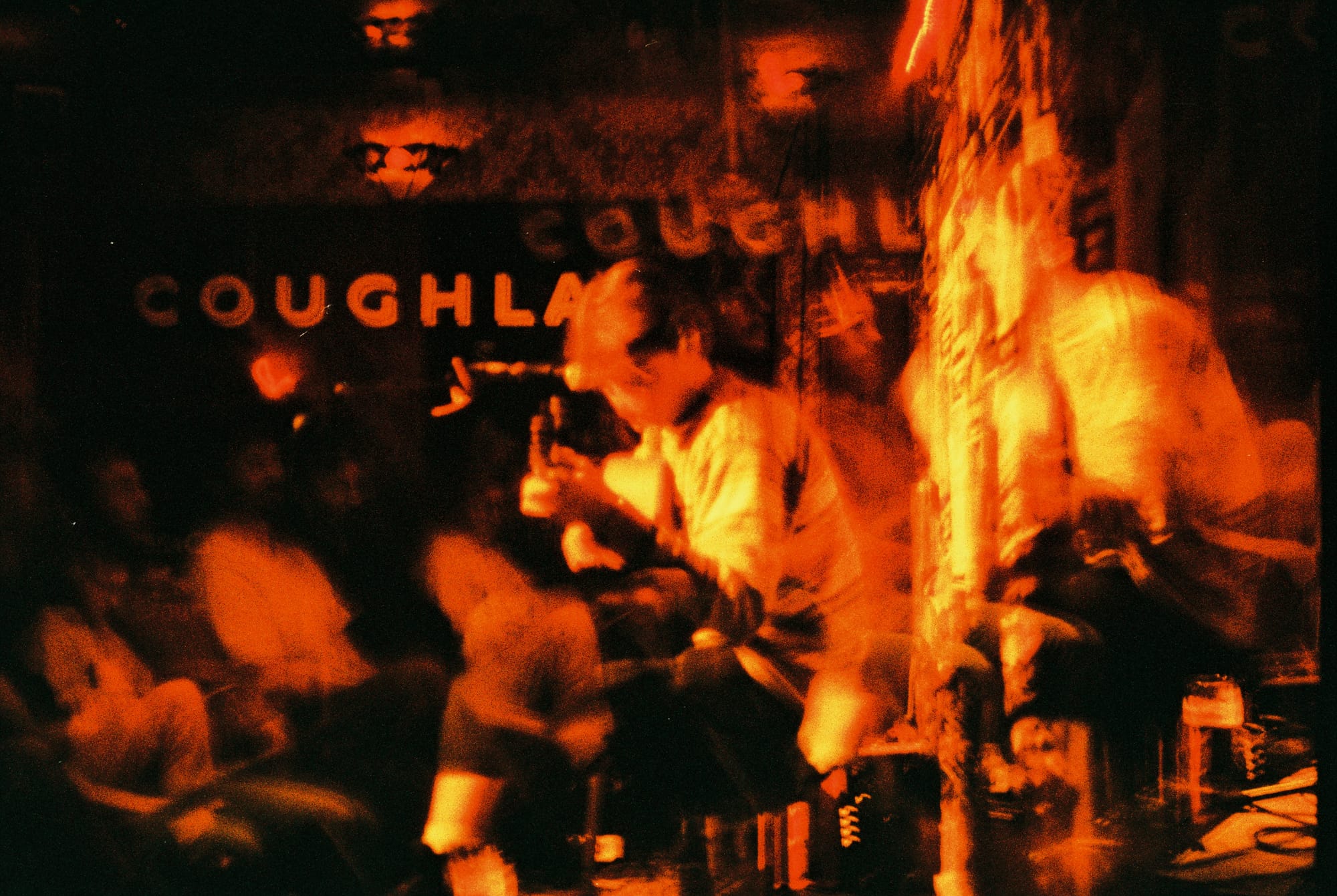
In bás in Éirinn, I reflected on the return of For Those I Love with his incredible lead single Of The Sorrows. The album has since come out and I’ve spent a lot of time thinking about it. It is a guiding light.
Stay here in Ireland and you learn to bite your tongue
Because your labour puts the boot down on someone
No peaceful way to make a tonne.
Yeah, sorry. My album reviews turn out to be manifestos and this manifesto turns out to be an album review. If the first album was one founded on grief, the second takes the simmering rage of standout track Top Scheme and blows it up to album scale, and it is equally direct and specific. On Mirror, the invective thrown at “reprobate ethnostate modern nationalist cunts” is the truth of the national mood. One of the cores of this record is labour; how some work feels poisoned and traitorous. On This Is Not The Place I Belong that is phrased specifically as being “in bed with technofeudalism”. On No Scheme, the sequel to that first album’s burst of rage, he turns inward:
But still I feel the blood of my forefathers through me
I still see their marks that they left in the stone
Would they be ashamed of my moves if they knew me?
For the trades I've made just to stay where I'm from
I think I have no business representing so hard for this album as a (not exactly shameless) blow-in from down the country, but this album has every bit of the power and emotion of his well-received debut, feeling just as timely as that debut’s re-release felt to the pandemic’s horror and isolation. I felt so taken by it in fact that when it became clear I wouldn’t make his Dublin show, I instead boarded a train to Belfast in the face of Storm Amy to catch the show in Limelight 2, then kept on that journey knowing that an essential moment in the history of Irish music was waiting on the other side of the rail replacement bus service.
The live show amplifies everything about his discography - performed as a three-act narrative with an interlude - some songs combined, reinterpreted and remixed; even visiting the Into a World That Doesn't Understand It Unless You're From It tape and adding live instrumentation. The centrepiece of the touring rig is a tree-like structure, a pole surrounded with surveillance cameras - at points the visuals on the screen take their point of view - at times Balfe performs face to face with a CCTV camera mounted directly onto his microphone. I Have A Love ends with a haunting final verse set years after the original album; "it should have been the four of us up here playing Dear James; so Paulie, your stage". Top Scheme feels sharper and more direct with a line tweaked to "Few bob for a week in Mykonos and you won't pass the Occupied Territories Bill?". It's all him up there. He built the tour rig, designed the visuals, rearranged and performed the tracks, and delivers every instant of the performance with the full extent of his passion. Stepping back outside into the howling wind nothing else comes even slightly close. I start writing this piece.
referring back to recordings of this show has been an essential part of writing this piece. recording everything I go to has become such a weirdly essential part of Fourth Best's DNA; they're never perfect or really even serviceable to listen to - but they are part of the history after all.
The self-titled For Those I Love record redefined the Irish music landscape by bringing raw, unsettling grief to the dancefloor, but it also redefined itself - the record appeared one day and then disappeared, to be reborn with a label deal and a drip feed of singles and billboards like it never existed in the first place. It ran the risk of vanishing eternal and now sits in a thousand homes on vinyl. Its transformation also brought with it the Overmono remix heard a millions of times over in legendary sets on festival stages or YouTube link chains. That debut too transforms and mutates an enormous stack of samples - including digging deep into his own past work.
In the live show the original I Have A Love, the foundational song for the project, takes a nightmarish turn. Balfe made it clear in interviews leading up to the new album and tour that he would not dwell on the grief of the first record - speaking to Conor Cappliss in The Irish Times:
“I’ve tried to be very, very particular with this new record, not to revisit the concepts of the first,” he says. “Partially because I just can’t – my soul doesn’t have it in it any more”
And yet, towards the end of his set, the pain pours out in a new verse: "You haunt our dreams each night and gone again by the light of day [...] it should have been the four of us up here singing Dear James..."
It sets up a celebration. With a smile he closes out; "Paulie. Your stage." and exits as the Dear James vocals soar over the track, leading to a powerful conclusion.
This follow-up album is no less capable of delivering catharsis; in Mirror's colossal drums, in The Ox's crushing final act, and in I Came Back To See The Stone Had Moved's collage of tidal synth pads, hymnal pipes and reinterpreted protest song:
Now, there’s scenes of destruction on every hand
And only black waters run down through my land
Sad scenes of destruction on every hand
Black waters, black waters run down through the land
Sat down on the bank with my bait in my can
And just watch the clear waters run down through my land
Well, wouldn’t that be like the old Promised Land?
Black waters, black waters no more on my land
"I Came Back To See The Stone Had Moved" as a title, and a melodic nod at Amazing Grace of course are a hint at biblical resurrection; Black Waters a hint at revolution. Somewhere between Marx and Jesus is the deeply personal; "I’ll carve this stone until darkness comes because I am choosing to live". It might be one of my songs of the year, local or otherwise. It shook something in me the first time I heard it. I don't know to what extent the faith it decrees is in divinity, but I read this song as a monument to the salvation we find in community, resistance and one another, if we manage to build it.
Up next for Fourth Best some notes on Rory Sweeney's Old Earth and a chat we had at his album launch. And if all goes well, I'll be back in December to tell you about the Fourth Best album of the year. Honestly, I haven't picked one yet.
Also: I've made good on an old promise. My photo archive is being shared to Wikimedia Commons for the public to use however they want so long as I'm credited. I've added some of the photos to Wikipedia pages for artists like For Those I Love and Curtisy. In the next few weeks, I'd love to actually try writing some articles for notable Irish artists who don't have any!
If you enjoyed this piece, you'll find a home in the Fourth Best Discord server. We're now more active than ever, with daily chats about Irish and international music, gig news, feeds of some of our favourite Irish music websites, and an events feed powered by FlyPost.ie. It's nice to have a community space on the internet that feels set apart from the big social media platforms. A slop-free world is possible.
I know I don't do as much new music coverage as I should or get back to what lands in my emails but the truth is I am always reading and listening. Do not hesitate to send me your music as described on the about page.
Be good. More soon.

